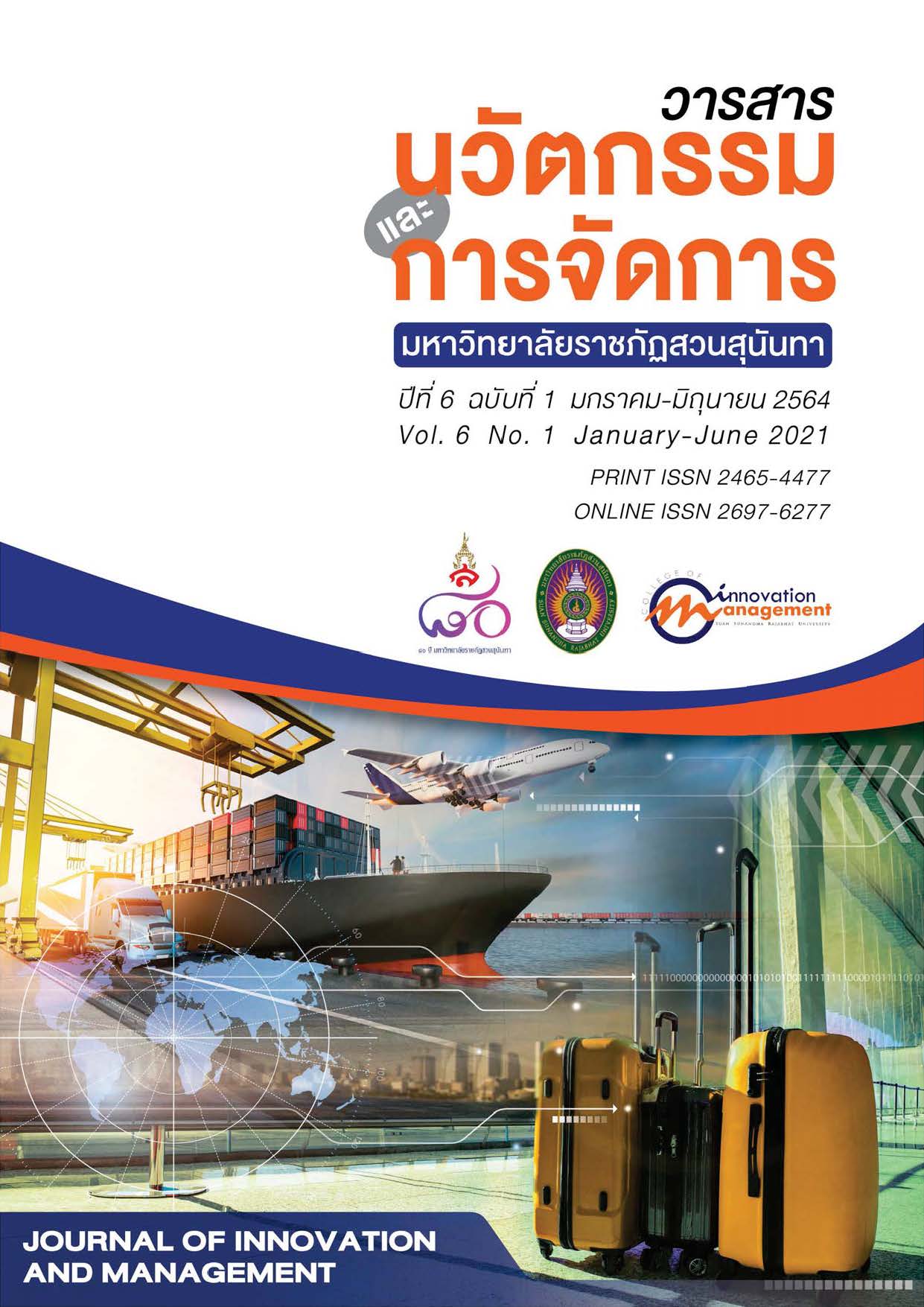Factors to Build Competencies and Competency in the Digital Age of Personnel of Thai China Fiber Optics Co., Ltd.
Keywords:
Factors to build competencies, Competency, The digital ageAbstract
The objectives of this quantitative research are (1) to study the level of factors to build competencies and the level of competency in the digital age of Thai China Fiber Optics Company personnel (2) to compare the digital age competency of personnel classified by personal characteristics, and (3) to study the relationship between factors to build competencies and the digital age competency of the sample personnel used in this research. Is 150 Thai China Fiber Optics Company personnel with questionnaires that were examined for accuracy and confidence, explaining the results of data analysis using statistics, frequency distribution, percentage, mean and standard deviation. One-way test of variance and Pearson correlation coefficient. The research found that (1) the overall factors to build competencies level were at high level in all aspects, namely self-efficacy. In terms of quality of work life and digital competency, respectively, and the level of competency in the digital age of personnel of Thai China Fiber Optics Co., Ltd. At a high level in all areas, namely teamwork, achievement-oriented, and creativity, respectively, (2) Thai China Fiber Optics Company personnel with age, education level, average monthly income and experience. Different functions There is a statistically significant difference in competency in the digital age. 05 Individuals with different genders had no difference in digital age competency, and (3) factors to build competencies positively correlated with the digital age competency of Thai China Fiber personnel. Optics were significantly limited at the. 05 with a very low correlation.
References
Akaraborworn, C. (2006). Create a person to create a portfolio. Bangkok: K. polprint. (in Thai)
Bandura, A. (1997). Self-Efficacy: The Exercise of Control. New York: W.H. Freeman and Company.
Boonlorm, W. (2008). The Relationship between quality of work life, organizational commitment and organizational citizenship behavior among teachers at technical colleges in the Three Southern Border Provinces. Independent Study of the Degree of Master of Science Program in Organizational and Industry Psychology. Chiangmai University: Chiangmai University. (in Thai)
Calvani, A., Cartelli, A., Fini, A. and Ranieri, M. (2009). Models and instruments for assessing digital competence at school. Journal of E-learning and Knowledge Society, 4(3), 183-193.
Chayrung, S. (2014). Job Competencies for Hotel Employees in Muang District, Songkhla Province. Thesis of the Degree of Master of Business Administration. Songkhla: Songkhla Rajabhat University. (in Thai)
De Bono, E. (1982). Lateral Thinking: A Text book of Creativity. Harondswort: Penquin Book.
Guilford, J. P. (1968). The nature of human intelligence. New York: McGrawHill Book.
Hinkaew, K. (2012). The Core Competencies of the Private School Administrators under the Primary Educational Service Area Office 2 District Pathumthani. Independent Study of the Degree of Master of Education. Bangkok: Krirk University. (in Thai)
Khaikhaw, V. (2010). Core competency of Maesriruen Limited's staff and Relate Company. Thesis of the Degree of Master of Education. Bangkok: Ramkhamhaeng University. (in Thai)
Khongkhasawat, T. (2017). Training Roadmap from Competency… How do you do?. Bangkok: Technology Promotion Association (Thailand-Japan). (in Thai)
Krumsvik, R. J. (2008). Situated learning and teachers’ digital competence. Education and Information Technologies, 13(4), 279-290.
McClelland, D. C. (1970). Test for Competency Rather than intelligence. American Psychologist, 17(7), 57-83.
Phithakthum, P. (2016). Employee Competency: A Case Study of the employees of Column Bangkok Hotel, Bangkok. Independent Study of the Degree of Master of Arts. Bangkok: Krirk University. (in Thai)
Sangpha, R. (2016). Factors affecting performance competency of employees under district administration organizations in Amphoe Muang area of Nakhon Phanom Province. Thesis of the Degree of Master of Public Administration. Mahasarakham: Rajabhat Mahasarakham University. (in Thai)
Spencer, L.M. and Spencer, S.M. (1993). Competence at Work: Models for Superior Performance. [Online]. Retrieved December 11, 2005. from www.joe.org/joe/1999december/iw4.html.
Thamjinda, C. (2007). Personnel Management and Human Resource Management. Journal of Dhamrongrachanupab, 6(22), 7-16. (in Thai)
ThitaJaree, K. (2007). Art activities for teachers. Bangkok: Press Office of Chulalongkorn University. (in Thai)
Downloads
Published
How to Cite
Issue
Section
License
Copyright (c) 2021 Journal of Innovation and Management

This work is licensed under a Creative Commons Attribution-NonCommercial-NoDerivatives 4.0 International License.
See Publication Ethics https://so03.tci-thaijo.org/index.php/journalcim/Ethics






